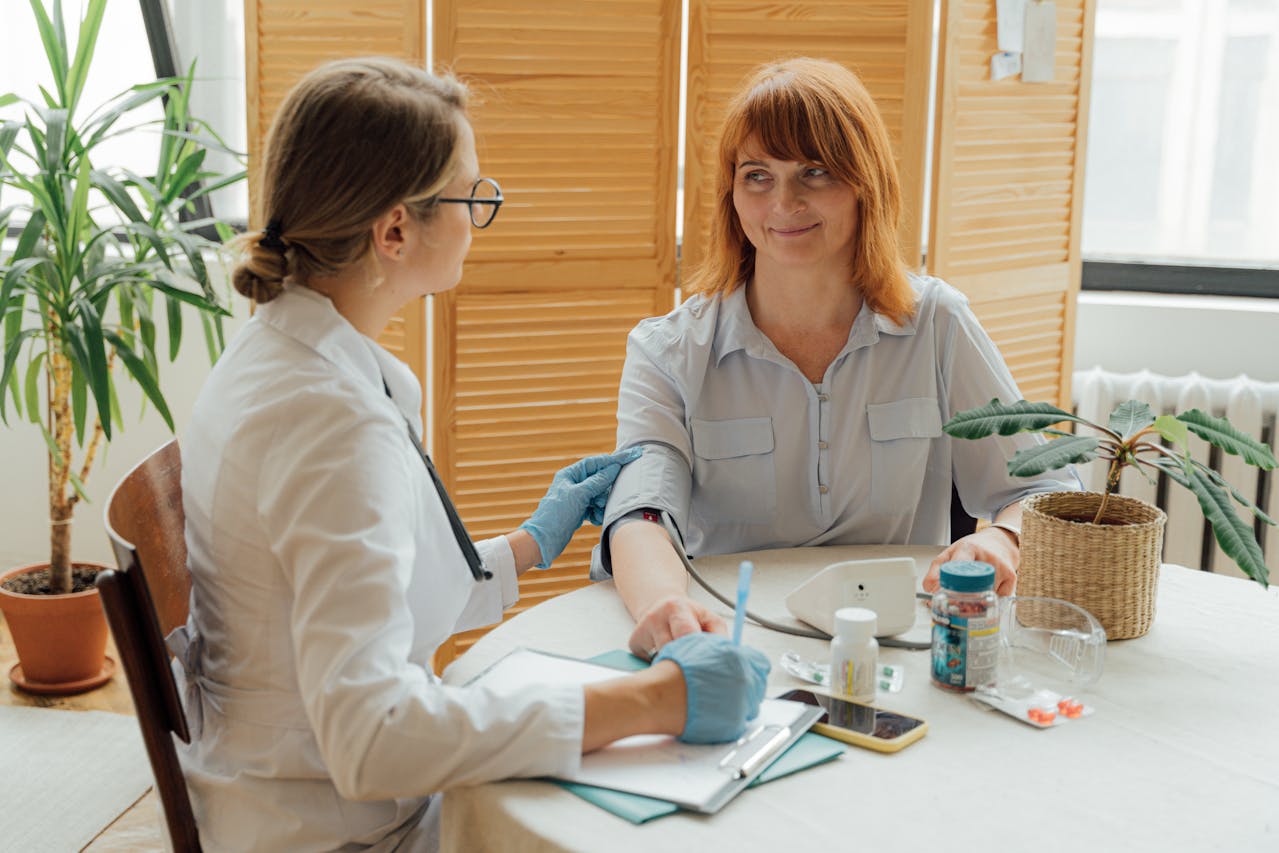How to Take Control: A Guide to Managing Chronic Kidney Disease at Home
A diagnosis of Chronic Kidney Disease (CKD) can feel overwhelming, but it's important to know that you are not powerless. While medical supervision is essential, the day-to-day management of your condition happens right where you live. By proactively adopting specific lifestyle habits and working closely with your healthcare team, you can significantly slow the progression of CKD, preserve kidney function, and maintain a high quality of life. This guide will walk you through the key areas of home care for kidney disease, empowering you to take control of your health.The Foundation: Your Diet is Your Medicine
One of the most impactful ways to manage CKD is through your diet. A kidney-friendly eating plan can reduce the burden on your kidneys and help manage associated health conditions like high blood pressure and diabetes. While your specific dietary needs will depend on your stage of CKD, a few universal principles apply.- Sodium Control is Key: High sodium intake raises blood pressure, which can further damage your kidneys. The goal is to limit your sodium to under 2,300 mg per day, or as advised by your doctor. This means moving away from processed and packaged foods, which are often loaded with hidden salt. Instead, cook at home using fresh ingredients and flavor your meals with herbs, spices, and flavored vinegar.
- Protein, Potassium, and Phosphorus: Your doctor or a registered dietitian will provide a personalized plan for these nutrients. Excessive protein can make your kidneys work harder, while elevated levels of potassium and phosphorus can have negative effects on your heart and bones. For example, your dietitian might recommend limiting foods like bananas and potatoes to manage potassium or dairy and nuts to control phosphorus. Understanding CKD nutrition is a critical step in your journey.
- Fluid Management: Staying properly hydrated is vital, but too much fluid can be a problem in later stages of CKD. Your healthcare provider will give you specific guidance on your daily fluid intake. Pay attention to signs of fluid retention, such as swelling in your hands, ankles, or feet.
Medication and Monitoring: Staying on Track
Managing CKD at home also involves being a vigilant partner in your medical care. This goes beyond just taking your prescribed pills.- Medication Adherence: Take your medications exactly as prescribed. Many medications for CKD are designed to control blood pressure and blood sugar, which are crucial for protecting your kidney health. Never stop or change a medication without consulting your doctor.
- Avoid Harmful Substances: Be aware that certain over-the-counter painkillers, specifically NSAIDs like ibuprofen, can be harmful to your kidneys, particularly with frequent use. Always consult with your healthcare team before taking any new medication, vitamin, or supplement.
- Track Your Numbers: Your doctor will regularly monitor key indicators of your kidney function, such as blood pressure and eGFR (estimated glomerular filtration rate). You can take an active role by monitoring your blood pressure at home with a reliable monitor. This regular tracking can provide valuable data and help you and your medical team make timely adjustments to your treatment plan.
Lifestyle for a Healthier You
Beyond diet and medication, a healthy lifestyle is a powerful tool for slowing CKD progression.- Move Your Body: Regular physical activity, such as walking, swimming, or yoga, can help you maintain a healthy weight and lower your blood pressure, both of which are beneficial for kidney health. Aim for at least 30 minutes of moderate exercise most days of the week, but always discuss a new exercise routine with your doctor.
- Prioritize Sleep and Stress Reduction: Chronic stress and poor sleep can negatively impact your overall health and blood pressure. Incorporate stress-reducing practices into your routine, such as meditation, deep breathing exercises, or spending time on a hobby you enjoy. Getting 7-8 hours of quality sleep per night is also important.
- Quit Smoking and Limit Alcohol: Both smoking and excessive alcohol consumption are known to accelerate kidney damage. Quitting smoking is one of the most significant steps you can take to protect your kidneys and cardiovascular system.
Building Your Support System
You don't have to navigate this journey alone. Building a strong support network is essential for both your physical and mental well-being.- Educate Loved Ones: Share what you've learned about your condition with family and friends so they can better understand what you're going through and offer appropriate support.
- Join a Community: Connecting with others who have CKD can provide emotional support and practical advice. There are many online and in-person support groups available.
- Communicate with Your Team: The most important relationship in your CKD management is with your healthcare providers. Don't hesitate to ask questions, voice concerns, and report any new or worsening symptoms. This open communication ensures you are receiving the best possible CKD care.
Are you tired of living under the shadow of kidney disease? Are you yearning for a life free from the shackles of dialysis, kidney failure, and the looming threat of kidney transplants? If so, you're in the right place at the right time. Imagine waking up every morning with boundless energy, feeling rejuvenated and ready to take on the day. Envision a life where your kidneys are functioning optimally, and you no longer dread the burdensome routines of dialysis sessions. The Kidney Disease Solution Program is here to turn that vision into reality for you.


